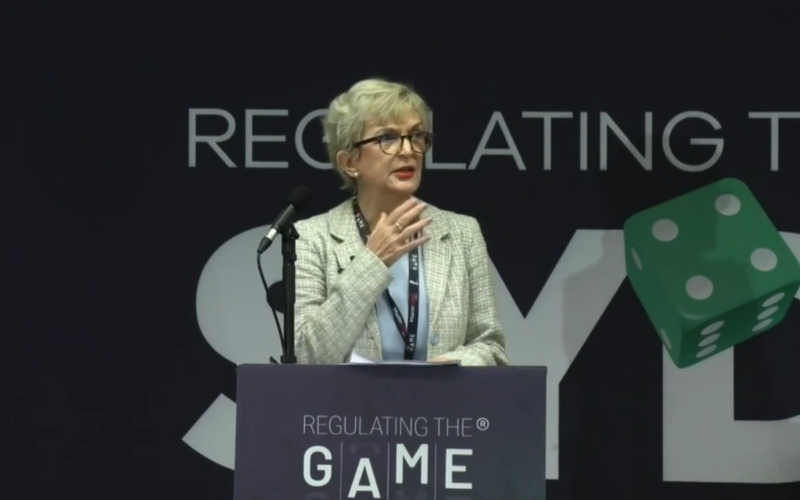Recently, Managing Values’ Principal Attracta Lagan was asked to present at the Regulating the Game conference in 2024. Specifically, Attracta was asked to address the topic of navigating ethical dimensions in the gaming industry and building sustainable organisational cultures in a post-COVID era. Below are the three key points from her presentation with some added context from our 20 years’ experience in the industry.
Ethical decisions are rarely easy nor dependent on common sense. They more typically require designing enabling frameworks such as a “can we/should we” test to guide decisions as well as hone decision making skills. Ethical decision making does not exist in a vacuum. Leaders must ‘set the table’ for their people by clearly articulating what ethical conduct looks like.
An organisation’s perception of ethics often supersedes an individual’s
While research shows that most people would consider themselves to be ethical, the prevalence of unethical behaviour in the workplace is evidence that group priorities often override the individual’s actions.
Specifically, when there is an organisational context which puts more emphasis on the company’s financial goals this can be seen as tolerating or tacitly encouraging compromise, which can undermine employee’s individual ethics and lead to unethical behaviour.
In order to build an ethical culture, an organisation needs systems and processes in place which support ethical decision-making. They need to allow managers and employees to recognise where a conflict between ethical action and business interest’ exists and empower people to make the right decision in the moment.
Actions speak louder than words; it’s not enough to have a nice corporate values statement
In our experience, it is often thought by senior leadership that setting ethical expectations in corporate values statements addresses the issue of unethical conduct and communicates this to employees. This is rarely the case. Organisations need to ensure they have the appropriate framework, processes and resources to manage the ethical dimension.
What is an Ethics framework?
A set of expectations, values and behaviours set at the organisational level. An ethics framework could include the corporate values statement, compliance documents or organisational purpose. These expectations need to be enshrined in induction processes, performance management, reward and recognition systems and management communications.
Training & Resources
Training in ethical expectations should be conducted in the onboarding of a new employee, and regularly communicated to existing employees through workshops, surveys and corporate leadership. In our experience, the most successful process for embedding ethics training is through a cascading model where leaders and managers are given the tools to conduct the training with their direct reports on an annual basis.
Measurement & Evaluation
Without active measurement of the ethical behaviour against the above resources, it is impossible to evaluate the success or suitability of the business’s ethical vision. As is often the case in corporate behaviour, what gets measured gets managed. Without review and iterative improvement of the corporate values and expectations, the desired employee behaviours will never develop.
Without having an ethics framework, ethical training & resources for employees, and continual evaluation and review of the organisation’s ethical commitments; ethics are often de-prioritised within an organisation. As in most business practices, ‘what gets measured gets managed’.
Nobody gets it right the first time, it is unrealistic and counter-productive to assume that you will
It is not enough to use generic ethical resources for a unique organisational context; ethical behaviour takes nurturing and refinement to succeed. Leaders need to do more than espouse the corporate values; they need to ensure their own actions & those of others are in line with the corporate framework and are highlighted and shared within the organisation often. We often say, “people listen with their eyes”. In other words, they take their lead from the behaviours modelled by their first up line manager rather than some well-intentioned values statement.
Very little consideration is given to the importance of designing business ethics training to speak to the inherent ethical challenges of each unique workplace context. And yet it is less complex than OH&S, SHE or governance and compliance all of which are seen as business essentials. In most cases we are called in to organisations to design and roll out ethical leadership training as a consequence of some ethical failure in the organisation or a perceived disconnect with stakeholders’ aspirations. Rarely are we contacted in order to prevent such events through building an appropriately ethical culture in the first place.
Such cultural training has become more urgent given the 2024’s Positive Duty reform requiring businesses to pivot from compliance priorities to proactive organisational culture design.
So where to from here?
The challenge for today’s leaders is to move beyond performative ethics—where values are often espoused but not enacted—to genuinely embedding ethical ambitions within their organisational fabric. It will require a new type of courage; the courage to build a culture that allows for the acknowledgment of missteps as a prerequisite to building organisational learning.
Rather than assuming ethical practices are already in operation and effective, a more realistic commitment might be to one of continuous progress. Business ethics training should no longer be seen as esoteric or discretionary but instead needs to be recognised as an essential component of building an ethical, and therefore successful, workplace culture.
Dr. Attracta Lagan is Principal of leading ethics and cultural consultancy Managing Values. She is currently a member of the team monitoring Star Casino Group, focusing on culture and transformational change. For more information about her work explore our website or email her directly at [email protected].
Please fill out the form below to get in touch regarding your organisation’s needs and we will get back to you as soon as possible. You can also call us on 0430 889 850 or email us directly at [email protected].
|
|

